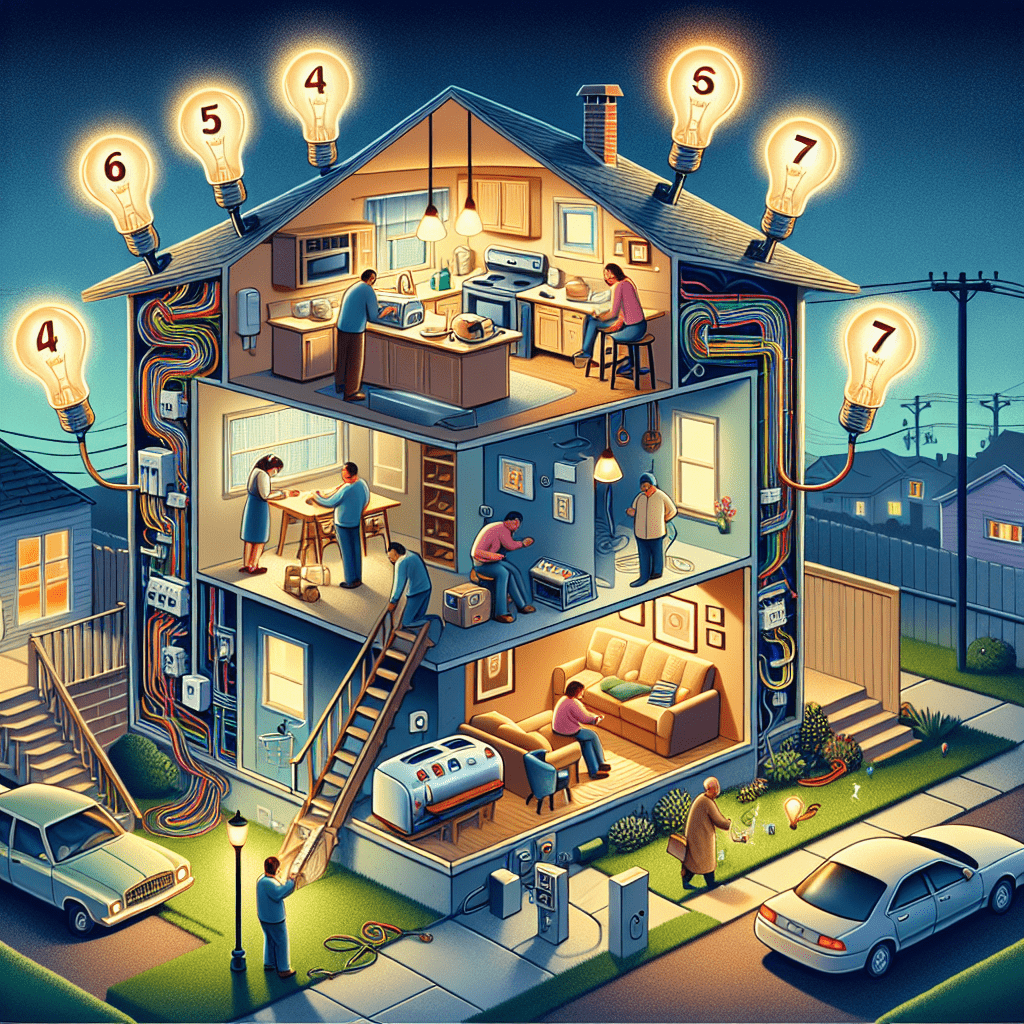Electrical issues can be daunting for homeowners, but with the right knowledge and tools, many common problems can be solved without the need for professional help. Here are seven electrical troubleshooting tips that every homeowner should know:
1. Check the Circuit Breaker
One of the most common electrical issues in homes is a tripped circuit breaker. If a specific area of your home loses power, check the circuit breaker panel for any tripped switches. Simply flip the switch back to the ‘on’ position to restore power to the area.
2. Test Outlets with a Multimeter
If an outlet is not working, it may be due to a faulty connection. Use a multimeter to test the outlet for voltage. If there is no voltage, the issue may be with the outlet itself or with the wiring behind it.
3. Replace Faulty Switches
If a light or appliance does not turn on when the switch is flipped, the switch may be faulty. Replace the switch with a new one to see if this solves the issue. Make sure to turn off the power to the switch before attempting to replace it.
4. Inspect for Loose Wiring
Loose wiring can cause electrical issues such as flickering lights or intermittent power. Inspect the wiring behind outlets and switches for any signs of damage or loose connections. Tighten any loose connections to restore proper electrical flow.
5. Test GFCI Outlets
Ground Fault Circuit Interrupter (GFCI) outlets are designed to protect against electrical shock in areas with water exposure, such as bathrooms and kitchens. Test GFCI outlets regularly by pressing the ‘test’ and ‘reset’ buttons to ensure they are functioning properly.
6. Check Light Bulbs
If a light fixture is not working, the issue may simply be a burnt-out light bulb. Replace the bulb with a new one to see if this solves the problem. Make sure to use the correct wattage bulb for the fixture.
7. Call a Professional for Complex Issues
While many electrical issues can be solved by homeowners, complex problems such as panel upgrades or rewiring should be left to professional electricians. If you are unsure about a particular issue, it is always best to seek professional help.
Conclusion
By following these seven common electrical troubleshooting tips, homeowners can save time and money by solving minor electrical issues on their own. Remember to always prioritize safety when working with electricity and do not hesitate to call a professional for complex problems.
FAQs
Q: Can I troubleshoot electrical issues on my own?
A: Yes, many common electrical issues can be solved by homeowners with the right knowledge and tools. However, always prioritize safety and call a professional for complex problems.
Q: How do I know when to call a professional electrician?
A: If you are unsure about a particular electrical issue or if it involves complex electrical work such as rewiring or panel upgrades, it is best to call a professional electrician for assistance.
Pro Tip:
Invest in a quality multimeter and learn how to use it properly. A multimeter is a versatile tool that can help you diagnose a wide range of electrical problems in your home.
#Common #Electrical #Troubleshooting #Tips #Homeowner
